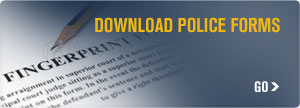INTERNET SAFETY TIPS
For Teens
![[object] [object]](/images/RAMA-POLICE%20NEW%202011-shoulder-flash-LOGO.JPG)
Be sure that you are dealing with someone that you and your parents know and trust before giving out any personal information about yourself via E-mail.
Never put personal information or interests in your Instant Messaging profile. This includes posting your picture as well. It can be copied from the computer screen and saved by anyone.
Keep your passwords private, even from your best friend! Your online service will never ask for them, so neither should anyone else.
If a person writes something that is mean or makes you feel uncomfortable, don't respond. Log off and tell your parents. Never respond to these types of messages. When in doubt, always ask your parents for help. Just logoff if you're not sure-- you can always go back on later.
Be careful when someone offers you something for nothing, such as gifts or money. Be very careful about any offers that involve your coming to a meeting or having someone visit your house.
Never arrange a face-to-face meeting without telling your parent or guardian. If your parents or guardians agrees to the meeting, make sure you meet in a public place and have a parent or guardian with you as it is potentially dangerous for this meeting to take place unsupervised.
Remember that nothing you write on the web is completely private, including email...so be careful and think about what you type and who you tell.
Not everyone is as nice, cute and funny as they may sound online. Remember that people online may not be who they seem. Because you can't see or even hear the person, it would be easy for someone to misrepresent him- or herself; thus, someone indicating that "she" is a "12-year-old-girl" could, in reality, be an older adult.
Consider adding only friends you know and trust to your 'buddy list'.
Remind your parents to keep your computer properly protected by installing up-to-date security patches, current anti-virus software and a firewall to protect it from intrusions (hackers).
Always delete unknown email attachments without opening them. They can contain destructive viruses.
Always virus scan all files that are downloaded to your computer for viruses, even those from known persons.
For further information you can refer to Cybertips at
http://www.cybertip.ca/app/en/




